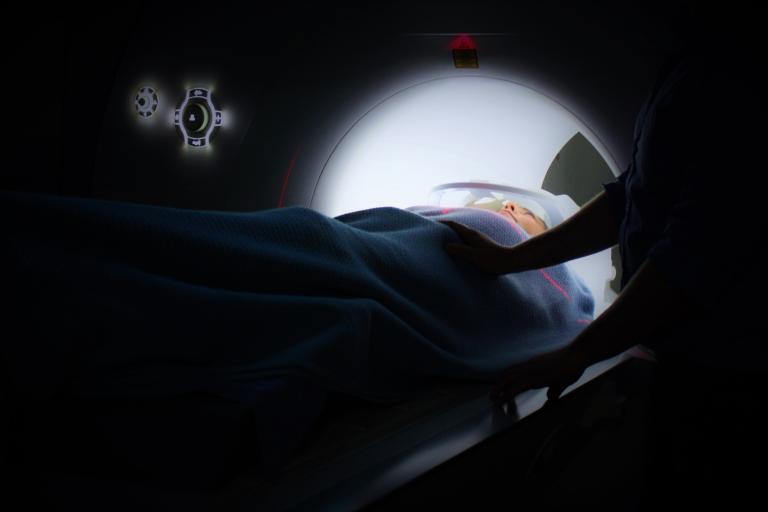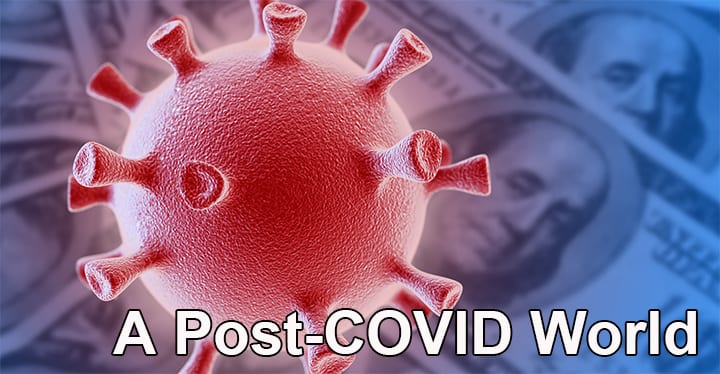Facing the Unthinkable.
“Cancer.”
That word came to me in a text from Audrey, my wife.
What we thought was a nothing — a tiny polyp removed during a routine colonoscopy, was cancer. Not pre-cancer, not “a little abnormality,” but cancer.
She got the message while she was at work from the doctor who performed the colonoscopy. A brief phone call with very little context and zero bedside manner. No perspective, just cancer.
Both of us have demanding jobs which we enjoy. This news hijacked us.
We texted back and forth. Shock. Rising anxiety. Questions about what to do.
Later in the afternoon, Audrey got a call from her own doctor. Dr. C is a fighter and an advocate for her patients. She reassured Audrey who texted the gist to me: “We caught it early. I’m doing cartwheels! I see so many cases where the situation is far worse.”
The doc’s comments got us through the day.
A New Reality
When we both finally arrived home, the digital conversation became a real one. We cried, we apologized, and we hugged. I reassured her and we camped out on the doctor’s first estimate: Early stage cancer, easy to treat, a minor inconvenience.
That was a Tuesday.
By Thursday, the tune had changed. After carefully reviewing everything. Dr. C thought it would be best for us to see a surgeon. She pulled strings and got us an appointment the next day.
Thus began our immersion into the world of doctors, nurses, waiting rooms, pre-operatory prep, and hospital cafeterias. At the point I write this, we’ve done three 4-day hospital stays, two major surgeries, and three minor procedures. We’ve spent every other Monday for the last six months in a cancer treatment center and had numerous other appointments and tests.
We learned two months in that Audrey had stage III colon cancer. Not a disaster yet, but not a minor convenience either. Cancer had become the defining mark of our new reality. It was like entering a parallel universe.
Entering the Parallel Universe
Spending a lot of time in a hospital is like being transported into another world. People dress differently, use different vocabulary, and have different work schedules. At NYU hospital, different types of staff wear different color scrubs; orderlies are different from nurses who are different from doctors. Docs are different from residents. Specialty nurses are different still. Most have challenging schedules, working blocks of three 12-hour days before getting time off.
We were hoping to be mere visitors to this world of blue and green uniforms but it didn’t turn out that way. I was fascinated though, by watching how these people worked. Being there with Audrey has been like an immersion experience — a deep dive into the realities of a different way of working. And this is not academic; these humans from another reality are essential in keeping my wife alive and bringing her healing.
Work-Related Lessons from the Hospital Waiting Room
Medical work, which we have now been the regular recipients of for eight months, can teach us something about work in general:
- Work is forming. To be a doctor or nurse or emergency room triage receptionist shapes the way you think, dress, talk, and schedule your time. Dealing with people who are physically challenged and psychologically a mess, develops you as well. Most of us don’t work in medicine, and we may fail to see how the job we do is shaping us, but we are still formed by the industries and companies where we work.
How is your work shaping you? What is good or bad about the results in you? How can you lessen the impact of the aspects that are potentially damaging?
- Callings are operative everywhere. We have met and been cared for by people who are so good! They are smart and they care. They talk you down from the ledge. I’m not sure how many of these people know God, but God knows them. He has made them in amazing ways. They have such talent and drive to care for you that it just leaves you awestruck.
When would people say this about you: that you are doing something with such heart and excellence that it is clearly a calling?
- Heroes and Schmucks in all worlds. In The Road to Character, David Brooks says that there are heroes and schmucks in all worlds. That is as true in the healthcare community as it is anywhere else. In our experience, we observed that the floor nurses were amazing, but the post-operative nurse who assigns beds was more like a grumpy NYC traffic cop. Some of the receptionists we talked to were clearly all about service, but one, in particular, seemed all about annoyance!
Do your expectations match Brooks’ statement, or have you been tricked into thinking that the right company or industry will employ nothing but heroes? What are the implications for your career path? Getting a bit more personal, which one are you?
- Looking for a Happy Ship. A few centuries ago, when sailors risked their lives in wooden vessels on the high seas, they rated life on board based on a happiness scale. A happy ship was one where the sailors respected the officers, and the officers were reasonable, generous, and firm. It’s a helpful question to ask about institutions and departments of large organizations. Some are clearly happy ships and others, not so much. Many of the people who have cared for us served together with commitment and joy. Others seemed harried, overwhelmed, and not so concerned about how we were doing.
With my executive coaching clients, we frequently work on the skill of diagnosing company culture. These questions are helpful: How happy is the ship you’re currently working on? What makes it this way? How could you check the happiness factor before you move to your next job?
- Understanding God’s plan for work comes from appreciating the work of others. One of the ways we learn to appreciate the importance of our work is by learning about the work of others. Healthcare is one of the top 6 industries in New York City, where we live. Somewhere between 12% and 15% of workers are in this field. The writers of Scripture see God as ultimately the author of talent, skill, and giftedness. The callings of others are his way of providing for us.
We tend to think of doctors as making a lot of money. Some of them do, though it’s less guaranteed than it used to be. Alternatively, I was struck by how much all of these professionals have had to adjust their lives (beyond all the schooling), to be able to serve us the way they do. Their schedules are odd. Their “clients” are demanding and often desperate. And the business of getting paid for medical services rendered is intensely complex. There are great costs and great beauty in their profession.
What is another profession that you could learn from — one that is different from your own, and whose services you may count on? What can you learn about God and work by deeply thinking about this way of working?
Indebted to the work of others.
Cancer. We don’t wish it on anyone, though almost all of us will either get some form of it or see it hit someone we love. We fight cancer through the work of others. And we’ve learned to trust in that work and be grateful for it.
How about you? How has the work of others work—categorically different than your own—been a source of relief, blessing, and even joy, in your life?
Dr. Chip Roper writes Marketplace Faith from New York City, where he is the Founder and President of the VOCA Center. Under Chip’s leadership, VOCA rescues clients like you from the forces that rob them of effectiveness and joy at work. VOCA provides coaching, training, and consulting to individuals and organizations in NYC and beyond. Visit our faith-based website at vocacenter.org and our market-facing menu of services at www.vocacenter.com.












